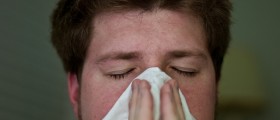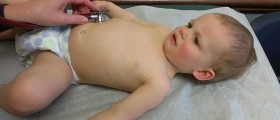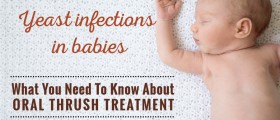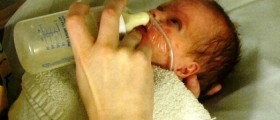
Bronchiolitis is a respiratory disease, an infection affecting bronchioles, the smallest air passages in the lungs. Inflammation of these structures is most commonly caused by different viral infections.
Bronchiolitis is frequent among infants, especially those younger than 6 months of age. The infection predominantly occurs during the winter months.
Even though bronchiolitis may resemble a common cold or flu, the initial symptoms slowly progress and one eventually starts to cough and wheeze. The infection generally lingers for a week or two and only if there are some additional underlying health problems or the infection affects a premature newborn, there may be complications which require hospitalization.
Bronchiolitis Clinical Characteristics
After the onset of infection patients develop flu-like symptoms such as runny nose, stuffy nose and slight fever. Some of them do not have to develop fever at all. The mentioned symptoms usually linger for a week and slowly progress. After some time patients start to wheeze (breathing becomes more difficult and noisy especially when breathing out). Breathing is rapid and sometimes quite difficult and one may also suffer from rapid heartbeat.
Healthy infants overcome the infection easily within 7-14 days. Premature babies or babies suffering from other medical conditions (e.g. heart, lung conditions, immune deficiencies etc.), however, may develop different complications and end up hospitalized.
Severe cases of bronchiolitis are accompanied by cyanosis, bluish discoloration of the skin associated with inadequate tissue supply with oxygen. If the child is cyanotic, this is a warning sign that he/she does not receive enough oxygen and must be treated promptly.
Prevention of Bronchiolitis
The infant gets infected after a close contact with the carrier of the virus i.e. a person who is infected as well. If parents are suffering from cold or other viral infection, a potential cause of bronchiolitis, they need to pay impeccable hygiene prior touching the baby. They are also due to wear a face masks each time they come in contact with their baby. Kissing the baby is strictly forbidden.
During winter months it is best if the child remains in no close contact with people who might be suffering from cold or have fever of different origin. This especially refers to a newborn babies, premature newborns and babies already suffering from certain medical conditions.
Unfortunately, there is no vaccine for bronchiolitis. But with proper measures infection can be prevented from spreading from an infected individual to an infant.
If in spite of all precautions infection develops, parents are due to consult the baby's pediatrician who will opt for the most convenient treatment.

















Your thoughts on this
Loading...